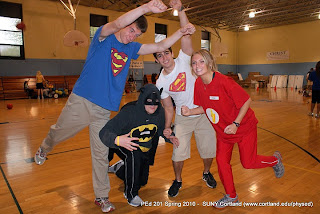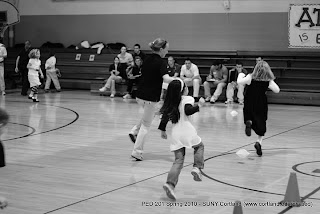
This week in lab it was superhero week. I think the kids just loved us all this week because we all dressed up as superheroes. My group was the first group to go today and i feel it went really well compared to the last time we had to go first. This time we played a quick tag game to get their attention and try and tire them out a little so they would listen better. After we played the tag game and calmed them down we played with the parachute, which the kids LOVED! After playing several parachute games like, popcorn, air conditioner, shark, and just making waves we went down to the cafeteria and worked on fine motor skills. The kids played with legos and built houses, space ships, and boats. They absolutely love building space ships with us, that's all they could talk about for the entire time we were down there. Every two seconds was them saying "look at my ship, isn't it cool". This lab just went great i feel i couldn't be any happier knowing that we went out with a bang for our last lab of the semester. I'm very lucky to be able to work with kids from the school and actually get to do hands on work, it definitely helps out a lot.




